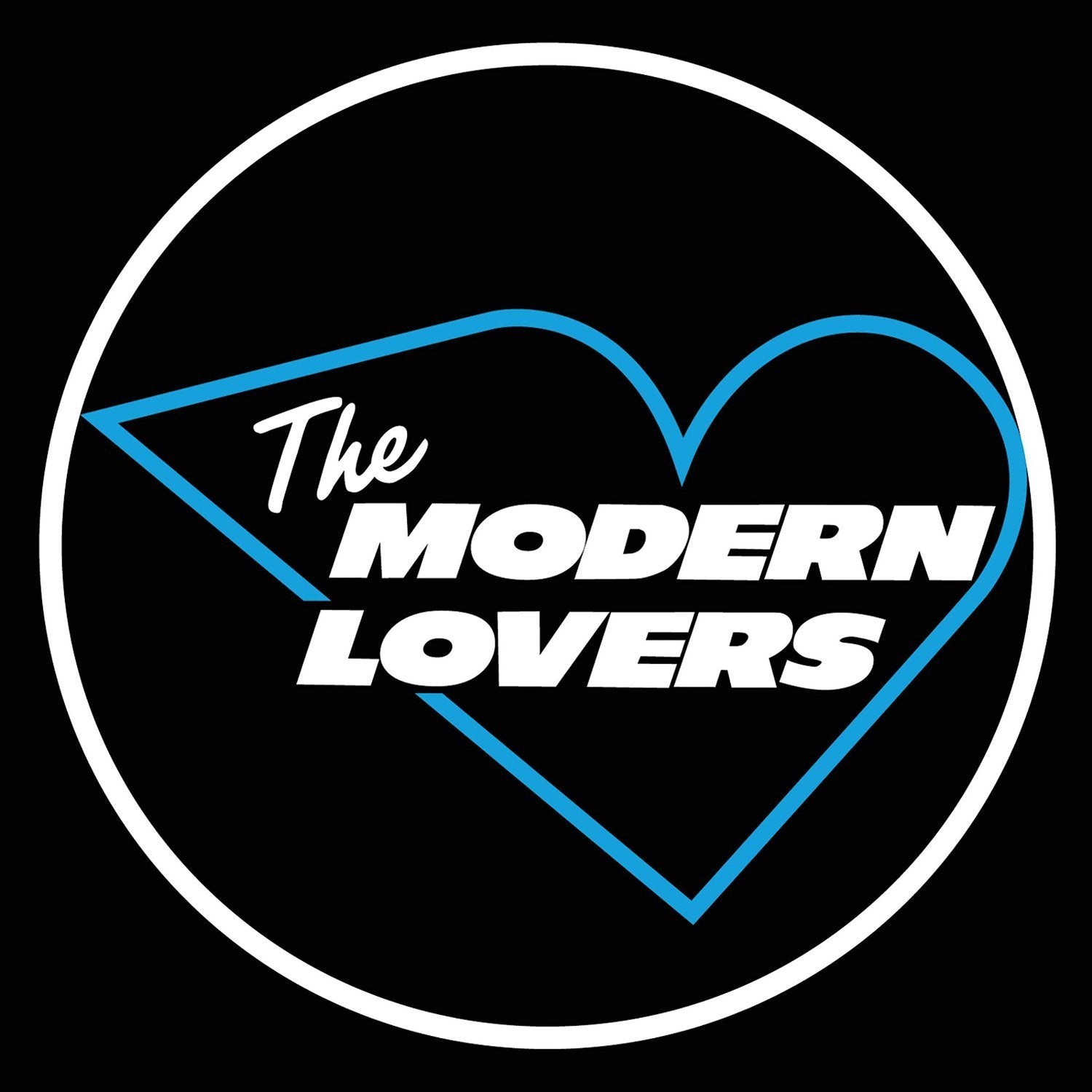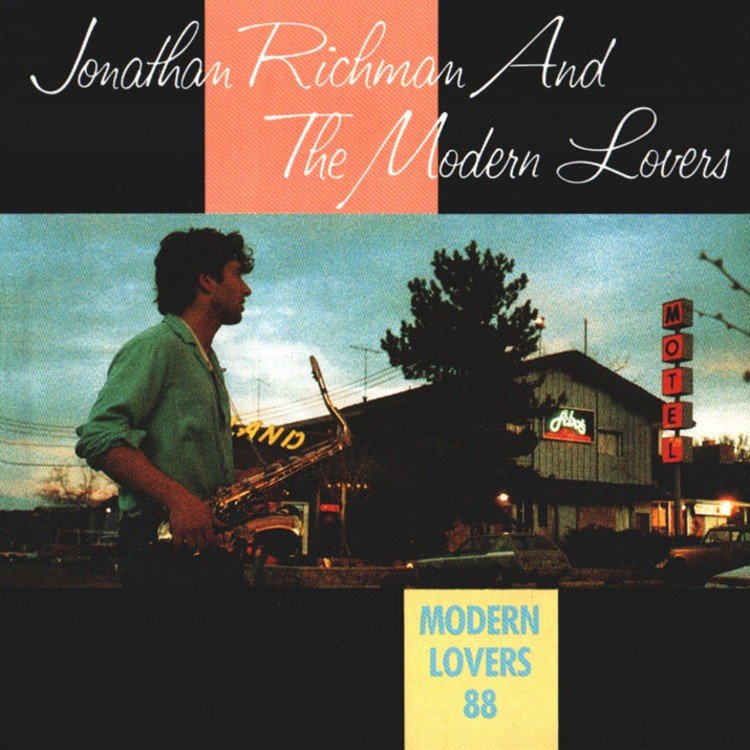A Jonathan Richman Primer
Dissecting The Power Pop Wunderkind's Deep Catalog
Kurang dari satu halaman dalam Love Goes to Buildings on Fire, buku definitif Will Hermes tentang persimpangan skena musik di New York City tahun 1970-an, seseorang merobek bajunya. Tetapi konteks adalah kunci—pelakunya adalah Jonathan Richman yang berusia 21 tahun, yang membentuk peran simbol seks yang sadar diri seperti tidak ada sebelumnya. Dia mulai menampilkan lagu-lagunya sendiri 5 tahun sebelumnya di Cambridge Commons, baik menakut-nakuti maupun menarik perhatian para intelektual yang lewat dengan memproyeksikan suaranya dan persepsinya yang tidak terfilter.
Dia selalu menyanyikan apa yang dia lihat, mengandalkan karisma, beberapa akor, dan mentalitas "pemikiran pertama, pemikiran terbaik" untuk meningkatkan lagu-lagu rock yang tulus. “Cappuccino Bar” mengungkapkan kecemasan karena terlalu banyak kafein. Dalam “You Can’t Talk To The Dude,” Richman berempati dengan situasi teman sekamar yang canggung. Dengan hits seperti “Road Runner” yang terinspirasi oleh Velvet Underground, dia mengklaim tidak pernah menuliskan liriknya.
Richman tidak pernah kehilangan sentuhan kemurnian lirik, terlepas dari variasi yang dia mainkan: Modern Lovers, Jonathan Richman and the Modern Lovers, atau Jonathan Richman, solo. Modern Lovers yang asli merilis debut self-titled mereka setelah putus pada tahun 1976, sebelum Richman melakukan perjalanan ke barat dan membentuk susunan baru. Konfigurasi itu juga berumur pendek. Saat ini, dia solo penuh waktu, kecuali untuk kolaborasi live reguler dengan drummer Tommy Larkins. Akhir bulan ini, dia akan mempersiapkan lineup hari Sabtu FYF Fest yang padat dengan salah satu slot awal hari itu, dan sangat layak untuk menghadapi panas untuk menyaksikan penampilannya yang khas tanpa tali gitar. Di antara diskografi yang cukup besar, kami memilih lima rekor pengantar terbaiknya untuk mengatur suasana.

The Modern Lovers (1976)
Direkam secara sporadis mulai tahun 1971, kompilasi rekaman dari formasi asli Modern Lovers ini secara teknis adalah album pertama dari karya Richman. Namun, dia hampir tidak mengakui hal itu. The Modern Lovers menangkap visi penuh harapan dari remaja Richman, yang bersenjatakan Jazzmaster di sebuah taman umum. Pada usia 20 tahun, dia masih berada di tengah berbagai suara, belum memutuskan nada miliknya sendiri. The Modern Lovers—album tahun 1976 yang dianggapnya sebagai debut sejatinya—menampilkan gaya jangly dan harmoni yang kaya yang akhirnya dia pilih. Untungnya, dia tidak pernah meninggalkan visi puitis yang sehat yang menggerakkan The Modern Lovers.

Modern Lovers 88 (1988)
Reinkarnasi kedua Richman dari Modern Lovers (diberi nama inovatif Jonathan Richman and the Modern Lovers) menampilkan formasi yang berkembang selama 12 tahun eksistensinya. Modern Lovers 88 menandai rilis terakhir mereka, mengakhiri proyek Modern Lovers sekali untuk selamanya. Di sini, lebih dari sepuluh tahun Richman mengutak-atik band pengiringnya terbayar penuh dalam kekuatan paduan suara yang besar. Dengan total empat kata dan satu solo akustik yang bergetar, "Gail Loves Me" mengangkat garis vokal yang tidak jelas di atas puisi observasional khas Richman. Dia memperlihatkan grup Lovers terakhirnya, dan dengan nada seperti itu, siapa yang bisa menyalahkannya? Modern Lovers 88 adalah album musim panas setiap tahun, surat cinta untuk musim yang dihabiskan di luar ruangan, tanpa lengan. Menahan diri untuk tidak menyanyi bersama adalah dosa musim panas.

Having a Party with Jonathan Richman (1991)
Akhirnya bebas dari gelar Modern Lovers, Richman memulai tahun '90-an dengan Jonathan Goes Country yang agak membingungkan. Riff rockabilly-nya tetap ada, tetapi album ini meninggalkan kekosongan besar di tempat di mana selera humornya seharusnya berada—di situlah Having a Party with Jonathan Richman mengambil alih. Perpindahan tempo dan komentar vokal seperti á la Exile on Main St. (sebuah "woo!" di sini, sebuah "yeah!" di sana) membuat kritik diri sassy Richman semakin enak untuk ditarikan. Beberapa lagu termasuk “When I Say Wife” direkam di depan penonton hidup, dengan beberapa tawa yang tepat waktu dan tepuk tangan yang mengikutinya, paling keras ketika dia menyanyikan, “Wife sounds like laundry.” Kecenderungan berbicara sambil bernyanyi-nya mencapai monolog penuh pada “1963” dan “Monologue About Bermuda,” mengingatkan kita bahwa bakatnya selalu melampaui penulisan lagu. Dia adalah seorang pendongeng di hati.

I, Jonathan (1992)
Lebih dari album Richman lainnya, I, Jonathan memetakan trajektori sejak debut Modern Lovers pada tahun 1976. Dia hanya membutuhkan waktu kurang dari 45 menit untuk menyentuh semua ciri khasnya: tepukan tangan, harmoni dekat, sajak hampir anak-anak tentang terjun payung atau keajaiban Lou Reed. Dia menunjukkan antusiasme anak-anak yang khas tanpa terkesan naif. Sebaliknya, kegembiraannya mengungkapkan penghargaan terhadap kesenangan yang paling diremehkan—cuaca yang baik atau lagu favorit dari band favoritmu. “I Was Dancing in the Lesbian Bar” mengungkapkan semangatnya untuk yang tidak diketahui, apa yang belum terlihat atau dirasakan sebelumnya. Tetapi di “Twilight in Boston,” saat berjalan melalui pinggiran kota, dia juga melihat pesona dalam familiaritas.
Anda bisa membeli edisi VMP album ini di sini.

Not So Much to Be Loved As to Love (2004)
Sulit untuk membayangkan mencintai cinta sebesar Richman. Dia merilis Not So Much to Be Loved As to Love kurang dari setahun setelah menikah, menghasilkan tingkat romansa yang memecahkan rekor. Setelah hampir tiga dekade, menempelkan kait dalam serenade masih menghasilkan rasa manis. Bahkan “Sunday Afternoon” yang instrumental terdengar seperti Richman dalam semua hal yang benar, menggantikan lirik dengan pelukan intim antara gitar dan bass. Pada Hari Valentine lalu, Richman membuka untuk Angel Olsen di acara terbesar yang pernah dia mainkan. Dia menyertakan salah satu lagu paling catchy dari Not So Much, “My Baby Love Love Loves Me Now”—sebuah kisah nyata tentang penghargaan. Di dasarnya, Richman menerima cinta lebih mudah daripada kebanyakan orang. Itu mungkin kualitas paling anak-anak yang dia miliki. Setiap kali terdengar seperti pertama kali.




